The greatest danger in times of turbulence is not the turbulence; it is to act with yesterday’s logic."
-Peter Drucker
Our Catholic schools, along with all schools, are working to adapt in a changing world over which they have less and less control. Much of our current situation as a result of the pandemic is uncharted territory and we are learning as we go. From a planning point of view, how we planned many things before in “strategically” looking to our future may not be what is needed looking forward. We need to seriously look at a way to think and act that moves us from our current world of Volatility, Uncertainty, Complexity and Ambiguity, or a VUCA world, to something different that help us make sense of and plan more effectively for the future of our schools.
VUCA in planning is not a new concept. It evolved from the U.S. military in response to various operational and combat situations. It is a way to address and work with change and events we cannot fully understand or control.
Volatility is dealing with unstable changes that are hard to predict and can shift unpredictably and without warning. It challenges us to match the resources we know and have to unknown risks. Uncertainty reflects our inability to predict or even know everything. The likelihood of surprise events increases and we are less able to predict new outcomes based on previous experiences or patterns of response. Complexity involves multiple factors in play at one time, the sheer number of which causes confusion, uncertainty of what to do, where we are going and how to get there. Often we know the need(s), but we don’t know where to go – what steps need to be taken, what resources are needed, what are the potential outcomes. There are multiple decision factors that need to be addressed, but in what order and how. Ambiguity is the lack of clarity, the potential for misreading situations or challenges and the difficulty of distinguishing threats from opportunities. The ambiguous events and outcomes we face defy description at times. Interestingly, in such a situation there may be no “right” answer.
The issue is how to navigate in the VUCA world in which we find ourselves today. Using the same acronym, VUCA, planning takes on a different approach – moving from volatility to Vision, from uncertainty to Understanding, from complexity to Clarity, and from ambiguity to Agility or Adaptability.
Vision is what we do, the right direction based on focused people making informed choices, communicating constantly and maintaining a strategic, long-term perspective. Understanding is the empathy to feel people’s fears, desires, and hope, keeping an open mind to be curious, explore options, be reflective, know what people want and need and challenge the status quo. Clarity helps simplify the events around us, using our intuition, trusting our gut and experience to cut through complexity one step at a time. Adaptability or Agility leads us to decisiveness, adapting quickly with confidence and the willingness to try something new if our first shot doesn’t work. Key elements of adaptability include innovate or die – learning from the mistakes and seeking a better way, and empowerment – valuing networks and subsidiarity, engaging a broad reach of stakeholders and leaders. It is setting people free to do great work.
We see and read daily the many plans (A, B, C, D and beyond) that are being developed in order to continue providing quality Catholic education in pandemic world. We are heartened and continue to pray for the success of these plans. Here at Meitler we are adapting to plan differently in this VUCA world to support, assist, and empower Catholic schools to move with confidence to perhaps a newer vision, greater understanding, more clarity and the ability to be agile and adapt.


